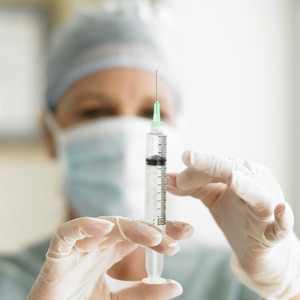Poultry farms ask for permission to vaccinate against highly pathogenic avian influenza
Rosptitsesoyuz has developed a strategy to combat highly pathogenic avian influenza (HAI) with the vaccination of industrial livestock against this disease. The strategy is being discussed at the Russian Ministry of Agriculture and the scientific community. This was reported to Veterinary and Life by the organization. Poultry farmers are afraid that the large-scale spread of bird flu in the world will jeopardize the development of domestic production.
“Rosptitsesoyuz developed and submitted to the Department of Veterinary Medicine of the Ministry of Agriculture of RUSSIA, the Federal Center for Animal HEALTH (FGBU “ARRIAH” of the ROSSELKHOZNADZOR ), the Federal State Budgetary Institution “Center for Veterinary Medicine” a strategy for combating highly pathogenic avian influenza with vaccination against highly pathogenic avian influenza, which is under consideration by the concerned ministries and departments,” the Rosptitsesoyuz told ViZh.
Vaccination of industrial livestock against AIV is currently excluded in Russia, Viktor Irza, Chief Researcher at FGBI ARRIAH, explained to ViZh. The scientist recalled that these norms contain veterinary rules for the fight against AIV (Order of the Ministry of Agriculture No. 158 of March 24, 2021).
At the same time, Rosptitsesoyuz drew attention to the difficult epizootic situation with highly pathogenic avian influenza.
According to the Rosselkhoznadzor, in 2022, 7.6 thousand AIV outbreaks were registered in 70 countries. According to scientists, the spread of avian influenza has become panzootic. Only the poultry industry in Europe has lost 50 million heads due to this disease. In Russia, in 2022, 56 outbreaks of AIV were registered in 17 subjects. The Russian poultry industry has lost just over 1 million birds.
However, poultry farmers fear that the situation will worsen.
“That jeopardizes the development of production,” the Rosptitsesoyuz noted.
Experience of foreign countries
Vaccination of industrial livestock against AIV is carried out in the poultry industry of Kazakhstan and CHINA .
“When an epizootic of avian influenza occurred in Kazakhstan in 2020, they headed for the vaccination of industrial livestock against highly pathogenic H5 avian influenza. There were no outbreaks in 2021 and 2022 in Kazakhstan,” Viktor Irza said.
The scientist drew attention to the fact that in the case of vaccination of industrial livestock, there are risks with the sale of poultry products for EXPORT. “Because importing countries are sometimes reluctant to buy poultry products if the exporting country vaccinates,” the scientist explained.
Victor Irza added that the international community pays a lot of attention to this issue in order to remove restrictions and vaccination was not a barrier to trade relations. But in this case, the civil services of the countries should provide a clear and precise system of supervision, the scientist emphasized. “So that the importing country is sure that, despite the vaccination, there are no threats with the possible introduction of the virus with the products,” the expert added.
There is a vaccine
FGBI ARRIAH scientists have developed a vaccine against highly pathogenic avian influenza. This is an inactivated emulsion vaccine against avian influenza (H5) "AviFluVac".
The new vaccine is based on the Yamal strain of low pathogenic influenza A virus subtype H5N1. According to scientists, the strain is less virulent and isolated in Russia.
"AviFluVacom" can vaccinate birds from 30 days of age. it is allowed to vaccinate chicks from the age of one day with half the vaccination dose. Immunity is formed in 21–28 days after a single application and lasts at least 9 months.
Now this vaccine is mainly vaccinated in birds in private farms. But, if the vaccination strategy in Russia is revised, ARRIAH is ready to provide the Russian poultry industry with the vaccine in the required volumes, Viktor Irza assured.

